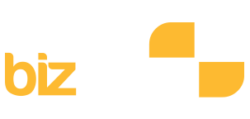Stacey Price from MYOB answers some common questions and busts some common myths to help small businesses prepare for EOFY ~WizeOwl
–
With End of Financial Year looming quicker than Usain Bolt at the Olympics, small business owners have all sorts of questions about their tax – here are the most common ones.
What’s the best time to start planning for EOFY? I’m guessing 29 June is too late?
We’ve already started tax planning for clients, in fact we start in May each year.
We have around 10 months of actual data and we look closely at current profits and also projected profits for the full year.
This gives us at least six weeks to implement any changes and make suggestions. However, it’s never too late (or too early) to start planning for EOFY.
What’s the easiest way for a business owner to assess their cash and tax position before EOFY?
Cloud accounting software should be seen as a lifeline for small business owners.
Not only can the business owner review their financial position, but we can also review their position at the same time, from our office.
The ability to have instantaneous information and to make predictions about the business’ future is worth every cent.
We find MYOB Essentials brings a lot of value for such a low monthly subscription fee, (not to mention the peace of mind) is worth 10 times that.
Tax deductions are always a hot topic…but is there really a “one size fits all” as to what people can claim?
No. And this is where we see a lot of small business owners fall down.
What businesses can claim depends on their industry, their sales, their business structure – just to name a few factors. Each client to us is looked at separately, and we advise accordingly.
Please don’t trust “Dr Google” or your mates when wondering what you can and can’t claim. It’s simply not worth the risk.
“But my last accountant let me claim it” – how many times do you hear this?
What frustrates us about this is when we ask the client why they have claimed certain things in the past, they often don’t even understand what their last accountant has done.
This just has “ATO audit nightmare” written all over it, and that’s something we don’t want to subject our clients to.
We want our clients to understand the implications of what they are claiming, so if there’s an ATO audit, they can sleep at night knowing they’re all above board.
What’s the biggest myth around tax deductions that you see each year?
Without a doubt this would be business owners not understanding that for every dollar they spend, they are not necessarily reducing their tax in the same proportion.
Tax rates for sole traders are based on marginal rates – so a $1000 tax deductible expense does not mean your tax will reduce by $1000.
It means that your taxable income, not your final tax bill, will reduce by $1000. This works in the same way if you were claiming as an individual.
Also, in the early startup stages, most sole traders are making minimal profit, so tax deductions are not really beneficial in those early stages (although there are carry forward provisions to consider).
What are some common deduction errors sole traders make?
Quite a few relate to the business proportion of the expense being claimed.
The most obvious one is mobile phone costs. If you use your mobile phone for both personal and business reasons, then your tax deduction you’re entitled to claim immediately has to be less than 100 percent.
Also, donations to charities which don’t have Deductible Gift Recipient Status come back to bite business owners who think large donations to “Go Fund Me” pages will help reduce their tax at EOFY.
Are there any tax incentives small business should be aware of before EOFY hits?
The small business immediate asset write-off is one many people know about, however we find business owners think this is a rite of passage to spend money on things they don’t need, to reduce tax they don’t need to pay in the first place.
While the government has a current threshold for immediate write-offs of $20,000, we encourage business owners to understand their cash flow and their tax position before using cash on items that are not really benefiting the business in the long run.
Any other tips?
EOFY should be an exciting time to reflect on the past 12 months of your business performance, to assess your business growth and to plan for the next year ahead.
Tax planning and reviewing your financial information shouldn’t just happen at end of financial year.
This should be a year-long service provided by your BAS Agent and Tax agent.
Having a partnership between your accounting software and your trusted advisors will see your business leap through tax time with ease and peace of mind.
Who wouldn’t want that?
–
Want some trusted advisors, or other more specific help? Contact Bizwize today!



